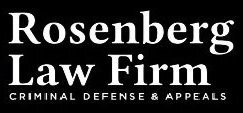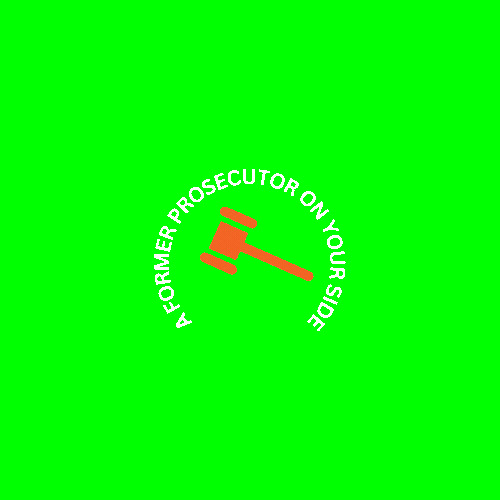Best Lawyers in Brooklyn
Share your needs with us, get contacted by law firms.
Free. Takes 2 min.
List of the best lawyers in Brooklyn, United States
United States Legal Questions answered by Lawyers
Browse our 38 legal questions in United States and read the lawyer answers, or ask your own questions for free.
- Internal investigation of sexual harassment in US
- I’m from [company removed], based in Hong Kong. One of my firm’s US employee reported to internal legal that I have sexually harassed her during my last trip to New York. An internal investigation is kicking off and I will be interviewed by firm legal. Also I have the opportunity... Read more →
-
Lawyer answer by M BILAL ADVOCATES, CORPORATE & TAX CONSULTANTS
If you are facing a sexual harassment allegation and an internal investigation in the U.S., do not submit a written statement or attend an interview without proper legal guidance. Anything you say can significantly impact your career, reputation, and potential...
Read full answer - Prenup Review and Signature
- I am looking for a Brazilian attorney to legally review a prenup with my fiancée. The prenup is only 18 pages written in both English and Portuguese. My fiancée speaks and reads English. The prenup follows USA/Virginia law. Once reviewed and signed by a lawyer with my fiancée, she can... Read more →
-
Lawyer answer by Castro Magalhães Law Offices
February 23, 2026 Proposal for Legal Services: Review of Prenuptial Agreement Dear Client, I am pleased to submit this proposal for the provision of legal services related to the review of a prenuptial agreement drafted in accordance with the laws...
Read full answer - Prenup Review and Signature
- I am looking for a Brazilian attorney to legally review a prenup with my fiancée. The prenup is only 18 pages written in both English and Portuguese. My fiancée speaks and reads English. The prenup follows USA/Virginia law. Once reviewed and signed by a lawyer with my fiancée, she can... Read more →
-
Lawyer answer by Castro Magalhães Law Offices
Castro Magalhães Sociedade Individual de Advocacia Carlos HB de Castro Magalhães OAB/RJ 080.783 | OAB/SP 501.014 Avenida Presidente Vargas, 3131, sala 604, Cidade Nova, Rio de Janeiro, RJ Avenida Paulista 1471, conjunto 511, CP 3622, Bela Vista, São Paulo, SP...
Read full answer
United States Legal Articles
Browse our 33 legal articles in United States written by expert lawyers.
- New York Climate Superfund Act Liability 2026 Guide
- This new US climate cost recovery law is retroactive and targets large historical greenhouse gas (GHG) emitters in energy, industrial, and logistics sectors as "responsible parties" for a $75 billion fund. Liability is strict: the government does not need to prove fault, negligence, or causation of specific climate harms, only... Read more →
- NY 2026 Corp Tax: Thresholds & Franchise
- For tax years beginning on or after January 1, 2026, New York businesses will only be required to make estimated tax payments if their expected New York tax (including any MTA surcharge) is at least $5,000, up from $1,000. Many small and some mid-sized New York corporations and S corporations... Read more →
- Are Non-Competes Enforceable in New York?
- Non-competes are still legal in New York and most of the United States, but courts apply strict scrutiny and often refuse to enforce broad, form agreements. Governor Hochul vetoed New York's broad non-compete ban (often referenced as S4641A / S3100A) in December 2023, so as of my last update there... Read more →
About hiring a lawyer in Brooklyn, United States
Hiring a lawyer in Brooklyn follows many of the same steps as elsewhere in New York State, but with local practicalities to keep in mind. Start by identifying the area of law that fits your situation - for example criminal, family, landlord-tenant, personal injury, immigration, employment, business, or estate planning. Look for attorneys or law firms that handle that area and that have experience practicing in Kings County courts and Brooklyn specialty courts such as Housing Court or Family Court.
Typical steps include contacting a short list of lawyers, arranging a consultation, asking about experience and fees, and signing a written engagement agreement if you decide to proceed. Many lawyers offer an initial consultation - sometimes free, sometimes for a flat fee. You will commonly be asked to pay a retainer or deposit before work begins. After hiring, keep clear written records of communications and confirm who will handle the work, key deadlines, and billing arrangements.
It is important to verify a lawyer's license and disciplinary record through the New York State court system. For court filings and appearances in Brooklyn, confirm where your case will be heard - for example Brooklyn Supreme Court, Brooklyn Criminal Court, Brooklyn Housing Court, or the local Family or Surrogate's Court - since procedures and local rules can differ by court.
Why You May Need a Lawyer
Criminal charges - If you are arrested, charged, or under investigation, the stakes are high. A lawyer can protect your rights, advise on plea options, and represent you at arraignment, hearings, and trial. Brooklyn cases often move quickly in local criminal court, so prompt legal help is important.
Housing and landlord-tenant disputes - Brooklyn has many renters and many landlord-tenant disputes. Lawyers help with eviction defense, housing code violations, rent overcharges, and buyout negotiations. Housing Court procedures and tenant-protection laws can be technical and time-sensitive.
Family law matters - Divorce, child custody and visitation, child support, orders of protection, and adoption are all handled under New York family law. A lawyer helps with courtroom representation, negotiation, and documentation that protects your parental and financial interests.
Personal injury and accidents - If you are injured in a car crash, on private property, or by a defective product, a lawyer can evaluate liability, handle insurance claims, and pursue compensation through negotiation or litigation.
Immigration - Immigration law is federal and can be complex. Attorneys help with visas, green cards, deportation defense, asylum, and naturalization. Brooklyn has many immigrant communities where language access and local knowledge matter.
Employment and consumer disputes - Unlawful termination, wage and hour claims, discrimination, unpaid wages, and consumer fraud claims are common. Lawyers evaluate claims, preserve evidence, and represent you in administrative proceedings or court.
Wills and estates - For estate planning, powers of attorney, or probate matters after a death, an attorney helps prepare documents and navigate Surrogate's Court procedures in Kings County.
Local Laws Overview
New York State law sets the substantive rules for most civil and criminal matters. Key statutes and bodies of law you may encounter include the Civil Practice Law and Rules - CPLR - for civil procedure, the New York Penal Law for criminal offenses, the Family Court Act and Domestic Relations Law for family matters, and the Real Property Actions and Proceedings Law - RPAPL - for many landlord-tenant and eviction proceedings.
The City of New York also has local laws and an Administrative Code that affect many everyday issues in Brooklyn - for example tenant protections, building safety and housing maintenance standards enforced by the Department of Housing Preservation and Development, and local consumer protections. Brooklyn litigants must follow both state rules and applicable local rules for the specific court where a case is filed.
Brooklyn has several specialized courts and dockets. Housing Court handles landlord-tenant disputes. Family Court handles custody, child support, and child welfare matters. Criminal cases may start in Criminal Court and move to Supreme Court for felony trials. Surrogate's Court handles probate and estates. Each court has its own filing requirements, forms, and local procedures, so working with a lawyer who knows the local practices can be helpful.
Statutes of limitations - Civil claims are governed by strict deadlines for filing a lawsuit. The deadlines vary by claim type, so consult an attorney quickly to avoid losing the right to sue. Similarly, criminal defendants face prompt timeframes for arraignment and other procedures.
Frequently Asked Questions
How do I find a qualified lawyer in Brooklyn?
Start with referrals from people you trust, then search by practice area. Check an attorney's standing and any disciplinary history through the New York State court system. Ask about relevant experience in Kings County courts and request client references if appropriate. Meet for consultations to evaluate communication style and fit.
What will a lawyer cost in Brooklyn?
Costs vary by practice area, lawyer experience, and case complexity. Common fee types include hourly fees, flat fees for specific tasks, and contingency fees for many personal injury and some civil matters (where the lawyer is paid a percentage of the recovery). Criminal defense and family law commonly use hourly or flat fees plus retainer. Always get fee arrangements in writing and ask about additional costs like court filing fees, expert fees, and copying charges.
Can I get free or low-cost legal help?
Yes. Legal aid organizations, pro bono clinics, and law school clinics provide free or reduced-cost services for eligible clients. Eligibility often depends on income and the type of case. Public defender offices provide representation in criminal matters for those who qualify. Ask potential lawyers about sliding-scale fees or payment plans if you do not qualify for free services.
Do I need a Brooklyn-based lawyer or is any New York attorney acceptable?
Any attorney licensed in New York State may represent you in state courts, but local knowledge matters. A lawyer familiar with Brooklyn and Kings County court procedures, local judges, and common opposing counsel practices can be an advantage. For federal matters, make sure the attorney is admitted to the appropriate federal court.
What should I bring to my first meeting?
Bring key documents and a clear timeline of events. For example: police reports, summons or court papers, leases, contracts, medical reports, photographs, correspondence, employer pay records, and identification. Write down questions in advance and note important dates and deadlines.
How long will my case take?
Case length depends heavily on the case type and complexity. Some matters resolve in weeks, while others take months or years. Criminal cases may have strict speedy-trial considerations, but scheduling and plea negotiations affect timing. Civil cases may require discovery, depositions, motion practice, and trial dates that extend the timeline.
How do contingency fees work?
Under a contingency fee agreement, the attorney is paid only if you recover money through settlement or judgment. The lawyer takes a negotiated percentage of the recovery, often with costs deducted first. Contingency arrangements are common in personal injury cases but are not permitted in all types of matters, such as certain family law or criminal cases.
What can I do if I am unhappy with my lawyer?
First, try to resolve concerns directly - discuss communication, strategy, and billing. If the problem continues, you may be able to change lawyers by retaining a new attorney and having them notify the court and opposing counsel. For serious ethical or professional issues, you may file a complaint with the New York State disciplinary authorities.
Will my communications with a lawyer be confidential?
Yes. Communications between you and your lawyer are generally protected by attorney-client privilege, which encourages candid communications. There are exceptions, such as when communications are made to further a future crime. Discuss confidentiality concerns with your lawyer at the outset.
How do I verify a lawyer's license and disciplinary history?
You can verify a lawyer's license and lookup disciplinary records through the New York State Unified Court System and the state disciplinary authorities. Ask the attorney for their registration or bar ID, and confirm through official state resources before hiring.
Additional Resources
Official state and city resources can help you find court information, forms, and government services. Consider these governmental sources for authoritative information and forms:
- New York State Unified Court System - for court locations, calendars, forms, and guidance:
- New York State government portal - for statewide services and agency contacts:
- New York Attorney General - consumer protection, civil rights enforcement, and complaint information:
- City of New York - municipal services, tenant resources, and local agency contacts including the Department of Housing Preservation and Development and 311:
- U.S. Department of Justice - for federal criminal matters, civil rights, and other federal resources:
Non-governmental organizations can also be very helpful. Consider contacting local bar associations, legal aid organizations, and law school clinics for referrals or pro bono help. While those groups are not government entities, they provide practical assistance in Brooklyn and Greater New York.
Next Steps
- Assess urgency: If you face an immediate emergency, such as arrest, domestic violence, or imminent eviction, take immediate steps to protect your safety and rights. For criminal matters ask for a lawyer at your first court appearance. For life-safety concerns call 911 or the appropriate emergency service.
- Gather documents: Collect all relevant paperwork, photographs, medical records, contracts, notices, and correspondence. Create a simple timeline of events to help any lawyer you consult quickly understand the situation.
- Prepare questions: Before consultations, prepare a list of questions about experience, likely outcomes, fees, estimated timeline, and who will handle your case day to day.
- Meet for consultations: Meet with two or three lawyers when possible to compare approaches and fees. Be candid about finances so you can explore payment options, contingency arrangements, or pro bono eligibility.
- Get the agreement in writing: If you hire a lawyer, make sure the scope of work, fee arrangement, retainer terms, billing practices, and termination rights are in a written engagement letter or retainer agreement.
- Track deadlines and follow instructions: Courts impose strict deadlines. Provide requested documents promptly, attend scheduled meetings and court appearances, and follow your lawyer's guidance carefully.
Finally, remember this guide is informational and not a substitute for legal advice tailored to your situation. If you need legal help, contact a qualified Brooklyn or New York State-licensed attorney promptly to protect your rights and interests.
Lawzana helps you find the best lawyers and law firms in Brooklyn through a curated and pre-screened list of qualified legal professionals. Our platform offers rankings and detailed profiles of attorneys and law firms, allowing you to compare based on practice areas, experience, and client feedback.
Each profile includes a description of the firm's areas of practice, client reviews, team members and partners, year of establishment, spoken languages, office locations, contact information, social media presence, and any published articles or resources. Most firms on our platform speak English and are experienced in both local and international legal matters.
Get a quote from top-rated law firms in Brooklyn, United States — quickly, securely, and without unnecessary hassle.
Disclaimer:
The information provided on this page is for general informational purposes only and does not constitute legal advice. While we strive to ensure the accuracy and relevance of the content, legal information may change over time, and interpretations of the law can vary. You should always consult with a qualified legal professional for advice specific to your situation.
We disclaim all liability for actions taken or not taken based on the content of this page. If you believe any information is incorrect or outdated, please contact us, and we will review and update it where appropriate.
Refine your search by selecting a practice area.





























